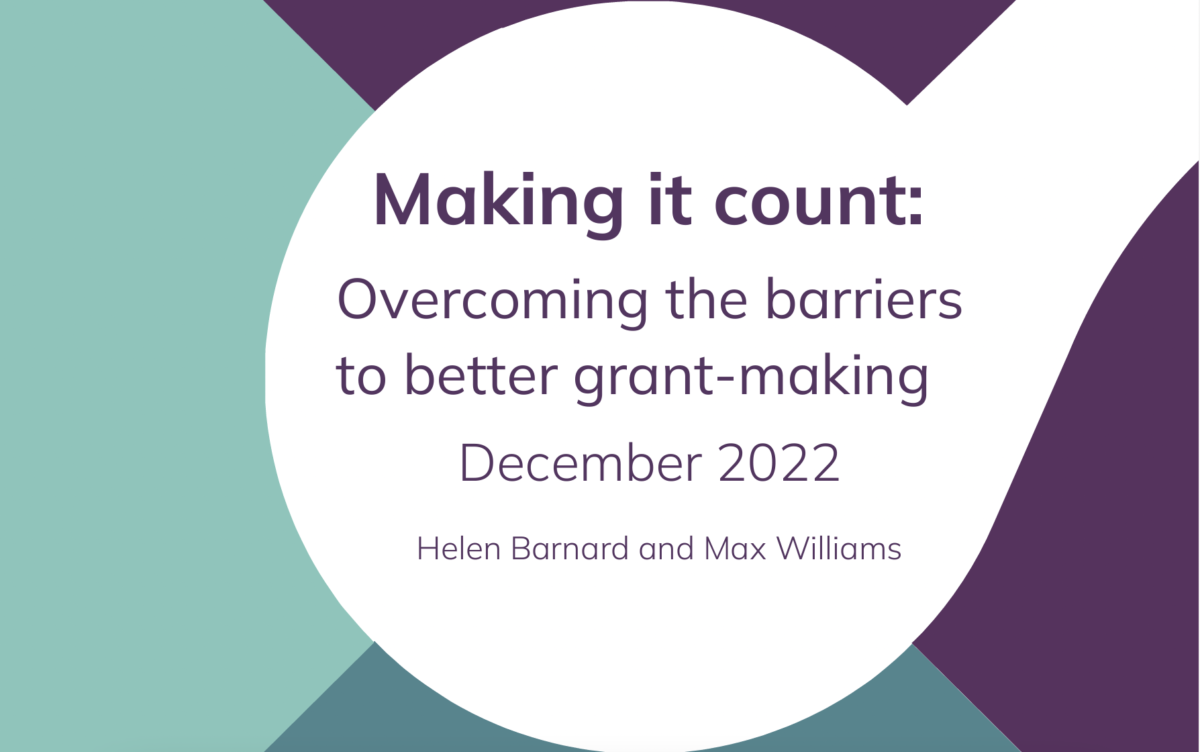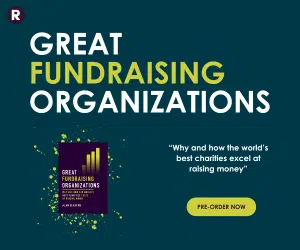Charity Commission urged to take active role in improving problematic grant making processes

Problematic grant making processes are holding the sector back, a new report has warned, with the Charity Commission urged to take an active role in helping to improve things.
While grant-making was worth £9.6bn in 2019-20, equating to 16% of sector income, research carried out by Giving Evidence for the Law Family Commission earlier this year found that charities in the UK spend at least £900 million a year on grant applications alone. Some small- and medium sized charities use a third of their overall grant income applying for more funding.
The new report, by Pro Bono Economics for the Commission, concludes that the current grant-making process is beset by “short-termism”, “sub-optimal processes” and the “reproduction of wider social inequalities”.
Advertisement
Helen Barnard, Research and Policy Director at Pro Bono Economics, said:
“Although there are numerous examples of brilliant grant-makers, there is a problem with the system more widely. Addressing this problem requires leadership from the Charity Commission and the sector’s various infrastructure bodies. These organisations have the influence and reach to bring lasting change which can help to unlock the full potential of grant-making in the UK.”
Barriers
Among the barriers identified is a lack of awareness among grant makers that their processes cause problems. Lack of understanding from trustees and donors about the communities they wish to help can also result in unhelpful restrictions on operations, while insufficient funding within many grant-makers makes assessing the impact of their practices or designing better processes difficult.
In addition, some larger grant-makers feel they intimidate smaller grant-seekers out of applying, and some smaller foundations find they lack the profile to reach these smaller grant-seekers. Charities run by and for ethnic minority communities in particular face “especially acute struggles in accessing grants”.

Recommendations
In the report, Making it count: Overcoming the barriers to better grant-making, the Commission recommends three measures:
- An active role for the Charity Commission in sharing information about problems caused by poor grant-making, what good practice looks like and the resources available to support improvements.
- An expansion of independent benchmarking to enable grant-maker benchmarkers to explore opportunities to expand the scope of their work. The Charity Commission should also encourage more involvement in and use of benchmarks across the sector.
- The voice of grant-seeking charities should be amplified. Charity sector infrastructure bodies should speak out on behalf of the sector to increase awareness of the problems caused for charities by poor grant-making while working with the regulator, government and benchmarkers to ensure change is adopted and driven forward.
Carol Mack, Chief Executive of ACF, said:
“In this time of rising living costs and great social need, foundations are playing a vital role in keeping charities afloat. Many funders are already demonstrating good grant-making practice and there is scope for this to be more widely adopted across the sector.
“Funding practices are where the rubber hits the road; the interface through which foundations interact most intimately with those that they fund. Ambitious and effective practice involves understanding the effects of funding on those that foundations seek to support, and seeking to avoid and redress harm. “It also includes more positive aims, like choosing funding practice that is most likely to help foundations achieve their mission, and designing processes in accordance with values. Implementing these principles will help foundations achieve even more and embed stronger practice.”
Sarah Vibert, CEO at NCVO, commented:
“The positive impact of grant funding on people and communities in the UK is already huge but has the potential to be greater still. We are at a critical point for voluntary organisations where demand is growing alongside financial pressures, so it is more important than ever that we get this right.
“As a sector, we know that smaller, grassroots charities can often have the greatest impact on tackling systemic inequalities facing communities, yet too often applying for grant funding can be complex and costly, which narrows the pool of opportunity. However, our own research showed that in response to the pandemic many grant conditions became more flexible, relationships improved and there was a greater availability of unrestricted funding. This should be the basis for longer term change.”





